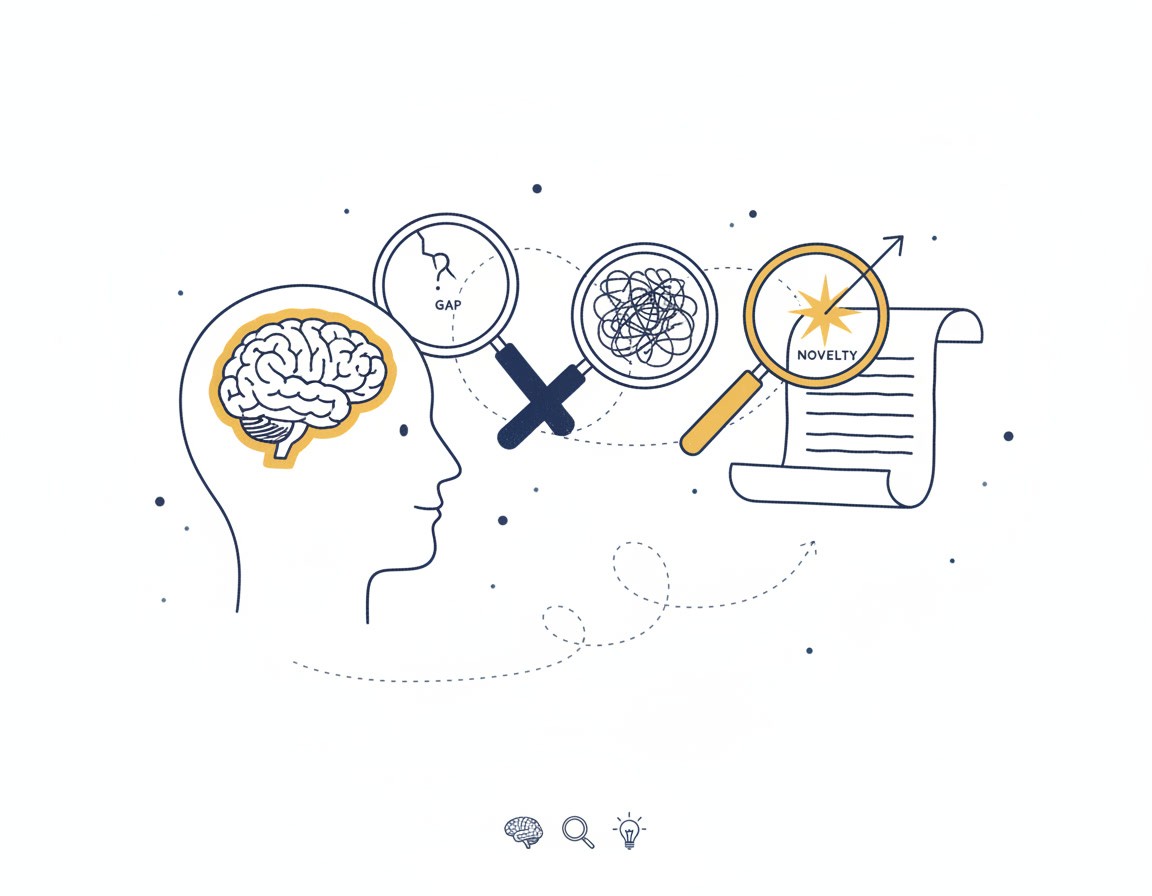Inside Academic Ghostwriting: What It Is and Why It Matters
Academic ghostwriting refers to the practice of hiring someone to produce academic work (essays, research papers, theses, or dissertations) submitted under another person's name. Unlike traditional writing support or editing services, ghostwriting involves a full transfer of authorship without attribution, placing it at the center of ongoing debates around academic integrity, contract cheating, and plagiarism.
In thesify’s first interview episode of its new video series, we spoke with a freelance academic ghostwriter who transitioned into this work during the early months of the pandemic after their planned PhD research was cancelled. Drawing on years of experience, they describe a range of assignments completed for students around the world, from literature reviews and theory sections to full theses. The discussion also touches on how ghostwriters navigate the growing presence of AI tools like ChatGPT in academic writing.
This article builds on that conversation to provide a broader, research-informed look at the topic. We examine who hires ghostwriters and why, the types of documents involved, how the writing process works, and what universities are doing in response. We also explore the ethical and legal implications of ghostwriting, including the recent crackdown on essay mills in multiple countries.
Meet the Ghostwriter: From Academia to a Shadow Industry
The ghostwriter featured in our interview holds advanced degrees in the social sciences. Like many postgraduates, their academic trajectory significantly shifted when their planned PhD research was abruptly cancelled.
What began as note-taking and proofreading evolved into full-scale ghostwriting, especially for clients who struggled to organize their ideas or complete writing in English. As they explain, demand surged from master’s and PhD students, many of whom were juggling full-time jobs, research, and personal responsibilities. The ghostwriter now works across disciplines, mostly writing research papers, thesis chapters, and academic articles for publication based on client notes, prompts, or previous drafts.
While some may expect ghostwriting to be an opportunistic side hustle, it has become a structured and time-intensive profession. Projects vary dramatically, from editing AI-generated drafts to writing entire manuscripts over the course of months. As they note, academic writing is formulaic in many fields, making it possible to work outside one's original discipline as long as the research is sound and the brief is clear.

Their reflections reveal the complexity of the work. It demands not only subject matter adaptability and research literacy, but also an ability to understand and reproduce a client’s voice. Most work is iterative, involving multiple rounds of revision and communication. The ghostwriter charges hourly and often declines work if the timeline, topic, or expectations are unreasonable, highlighting the often misunderstood scope of academic writing labor.
Understanding Contract Cheating: Who Uses Ghostwriting and Why?
Academic ghostwriting, often referred to as contract cheating, is frequently driven by student circumstances rather than inherent dishonesty. Research indicates that students facing high stress, time pressure, or academic language barriers are more likely to outsource their work. According to a systematic review published in Assessment & Evaluation in Higher Education (2021), factors motivating students to engage ghostwriters include unclear or overly difficult assignments, tight deadlines, and minimal feedback opportunities.
The pandemic has further exacerbated these pressures, pushing students towards external help as institutions shifted rapidly to online learning, often without adequate support systems in place. Universities report rising concerns about mismatches between students' known abilities and the quality of submitted work, making detection challenging and increasingly frustrating for educators.
For more insights into how students rationalize ghostwriting services, watch thesify’s full interview.
The Impact of AI on Academic Ghostwriting
AI tools like ChatGPT are reshaping the ghostwriting landscape by providing rapid, preliminary drafts that students or ghostwriters then refine. As noted in thesify’s interview, ghostwriters often encounter AI-generated text that needs substantial editing and verification. The complexity and iterative nature of this work suggest AI currently supplements rather than replaces human ghostwriting.
However, AI also presents new challenges for universities attempting to detect and deter ghostwriting. Recent studies highlight how these AI technologies significantly lower barriers to academic dishonesty, allowing students to easily generate content that seems original but often lacks critical depth or accurate referencing. This ease of AI content generation complicates ghostwriting detection, blurring the distinction between authentic student work and outsourced or AI-produced assignments.
Tools such as JenniAI illustrate this vividly, rapidly producing academic essays from minimal prompts. As shown in the screenshot below, these tools generate structured and detailed responses similar to those provided by professional ghostwriters, raising significant concerns around plagiarism and contract cheating.

AI writing tools like JenniAI quickly produce detailed essays that mimic professional ghostwriting, complicating academic integrity efforts.
However, as discussed in thesify’s interview, ghostwriters themselves often have to significantly revise and verify AI-generated drafts, underscoring that AI currently serves as a supplement rather than a replacement for human academic ghostwriting.
Traditional plagiarism detection methods remain ineffective against such AI-enhanced ghostwriting, as they typically create original compositions tailored to specific assignments. This presents universities with significant policy and technological challenges in maintaining robust standards of academic integrity.
Learn more about ethical AI use in academic writing in our article: Teaching Ethical AI in Academic Writing: A Guide for Professors and Instructors.
How Universities Are Responding to Contract Cheating
Universities worldwide recognize contract cheating as a significant threat to academic integrity and institutional credibility. Many institutions are implementing comprehensive approaches, including:
Redesigning assessments to emphasize authentic, personalized tasks less susceptible to outsourcing.
Strengthening detection through forensic linguistics and advanced authorship verification tools.
Increasing student and staff awareness through targeted education campaigns about academic integrity.
Legislative actions are also underway, with countries like the UK introducing stricter laws and penalties for essay mills and ghostwriting services. Universities are lobbying for stronger legal frameworks to better deter students and providers.
For more information check out our article Teaching with AI in Higher Education (2025): Curriculum, Assessment, and Faculty Literacy
Tips from a Ghostwriter: How to Succeed Without Cheating
The ghostwriter interviewed in thesify’s video offers practical, experience-based advice for succeeding in academic work without turning to unethical shortcuts.
Their top recommendation: understand your own working style. This means recognizing when you're most productive and breaking assignments into manageable chunks. Planning ahead and setting internal deadlines reduces pressure and helps avoid last-minute panic—the most common trigger for cheating.
Equally important is learning to structure a strong academic argument. Many students seek ghostwriting not because they can't write, but because they struggle to frame their ideas or connect theory to their topic. Investing time in understanding your theoretical lens and practicing argumentation can significantly boost your writing confidence and performance.
When it comes to AI, the ghostwriter cautions students to treat tools like ChatGPT as brainstorming partners, not final writers. Use AI to explore ideas or draft outlines, but always revise, verify, and cite manually. Responsible use of AI means maintaining full ownership over the thinking and final product.
To illustrate how students can use AI responsibly, consider thesify’s feedback interface below. Unlike tools that write content for you, thesify provides formative, ethical support—helping you clarify ideas, improve structure, and develop your academic voice.

thesify’s interface offers targeted, ethical feedback to help students develop clarity, structure, and strong academic arguments—without doing the writing for them.
Finally, the ghostwriter urges students to use legitimate academic support systems. These include university writing centres, thesis supervisors, peer review groups, and time management workshops. Seeking help early and often reinforces your learning and reduces the temptation to outsource. As highlighted in research and academic policy, contract cheating carries serious long-term consequences, including academic suspension, loss of degrees, and reputational damage.
Conclusion: Ethical Academic Writing in the Age of Ghostwriting and AI
Academic ghostwriting exposes complex issues within higher education, including student pressures, ethical considerations, and technological advancements like AI. Understanding the motivations behind ghostwriting, the detailed process involved, and the institutional responses can help inform solutions that uphold academic integrity.
Watch our full video interview with an academic ghostwriter to understand the risks of ghostwriting and why ethical writing tools matter: Watch the full interview
Stay tuned as future episodes explore related topics, including how universities are adapting to AI and enhancing student writing support.
Choose thesify Instead: An Ethical Alternative to Ghostwriting
By using thesify, you avoid the ethical pitfalls and academic risks associated with ghostwriting and plagiarism, developing authentic writing skills essential for long-term academic success. Upload your draft and get instant, professor-level feedback on your writing.

Related Posts
How Professors Detect AI in Academic Writing: A Student’s Guide: Artificial Intelligence (AI) tools like ChatGPT, Claude, and Gemini are reshaping academic writing, assisting students with brainstorming, research, and drafting. However, misusing AI to generate full essays without acknowledgment raises serious academic integrity concerns. This guide explains how professors detect AI-written content, the tools they use to catch AI-generated writing, and challenges in AI detection.
AI Academic Writing Ethics: How Professors Can Teach Responsible AI Use: AI is no longer a novelty in your classroom. Students are using it to brainstorm ideas, structure essays, summarize sources, and even generate citations. In many cases, they’re doing so before you’ve had the chance to establish clear expectations. As a professor, you’re facing a growing challenge: how do you support student learning in an AI-saturated environment while still protecting academic integrity?
When Does AI Use Become Plagiarism? A Student Guide to Avoiding Academic Misconduct: AI can be a powerful writing assistant, but misuse can lead to academic consequences. To avoid plagiarism, use AI responsibly—focus on developing your own arguments, cite sources correctly, and ensure that your final submission reflects your thinking, not just AI-generated content. Find out how to stay on the right side of AI ethics in this post.

















